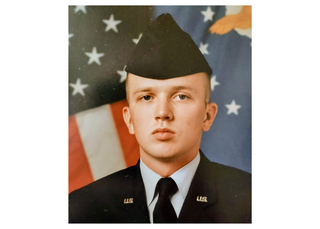Veteran’s Day Tribute
Nov 11, 2025
This Veteran’s Day, we pause to honor the profound commitment and service of the men and women of the U.S. Armed Forces. For many veterans, the mission of protection doesn't end when they take off their uniform; it simply shifts to a new professional landscape, particularly within the physical security industry.
To gain insight into this transition, we spoke with Stephen Bremer, a Program Manager at Northland Controls and a former U.S. Army Technical Sergeant (620th Ground Combat Training Squadron Instructor Supervisor), about his career, the evolving security industry, and the unique value veterans bring.
What was your favorite thing about serving in the military?
"During my time in the military, I had the privilege of visiting 31 countries and working alongside individuals from countless others," Bremer shared. "Experiencing different cultures, hearing new music, trying unfamiliar foods, and learning foreign languages was incredibly humbling. The military gave me a global perspective which is one that continues to shape how I lead, communicate, and view the world today."
What have you enjoyed most about working in the security industry these past 20 years?
"Security touches everything from physical barriers like bollards and boulders, to guards on the ground, to highly sophisticated electronic and cyber security systems," he explains. He recalls a 2006 Tactical Automated Security System (TASS) course introducing him to technologies like radar and thermal imagers—lessons that unexpectedly shaped his trajectory.
"Two decades later, I now manage large-scale electronic security projects across the Americas, implementing many of the same technologies I first learned about years ago," he says. "The security industry never stands still and that constant innovation keeps me passionate about what I do every day."
How have the skills you learned in the military helped you in your current role?
The skills honed in the military are not just transferable, they are essential. Bremer's favorite saying from the military, “Semper Gumby,” meaning “Always Flexible,” captures a mindset central to his success, which is the ability to pivot, adapt, and respond to constantly changing circumstances.
That adaptability pairs with his personal motto, “Too Easy.”
"It wasn’t about dismissing challenges but about embracing them with confidence, knowing that with the right mindset, teamwork, and resources, any mission could be accomplished," he explains.
This same resilience aligns perfectly with the private sector's need for problem solvers. "I love that our company’s spirit of “Challenge Accepted” perfectly aligns with the same resilience, adaptability, and teamwork I learned in the military," Bremer notes.
What advice would you give to other veterans looking to join the security industry?
Bremer's path into security wasn't linear. An injury abruptly ended his planned 20-year service, forcing an unexpected job search. His first role as a Security Master Assistant Team Manager at a financial institution was surprisingly focused on data security projects instead of physical security. But that analytical experience opened the door to a broader understanding of building automation, the Internet of Things (IoT), and eventually, physical security systems like access control, intrusion detection, and securing large-scale data centers.
His advice to veterans looking to join the industry is simple: Don’t be afraid to start anywhere.
"Security isn’t limited to standing post or monitoring camera feeds," he advises. "From physical and electronic security to cybersecurity, drone technology, and systems integration, there’s room for every skill set. Veterans naturally understand structure, accountability, and teamwork which are all critical components of managing risk and protecting people and assets."
He adds, "The industry changes fast... Don’t be afraid to start anywhere, learn constantly, and take on challenges that push you outside your comfort zone. The security industry isn’t just a career path, it’s a continuation of service, just in a different form."
Are there any aspects of military culture that you miss or still carry with you today?
One aspect of military culture Bremer will always carry is the sense of humor.
"No matter how stressful or serious the situation was, we always found something to laugh about," he shared. That ability to find levity helped keep morale high, and this mindset still influences how he deals with challenges today. "When things don’t go as planned, and they often don’t, I remind myself that when you don’t get what you want, you get experience."
This Veteran's Day, we salute Stephen and all veterans who continue their mission of safeguarding our world. Your service, leadership, and adaptability remain invaluable in the field of security.
